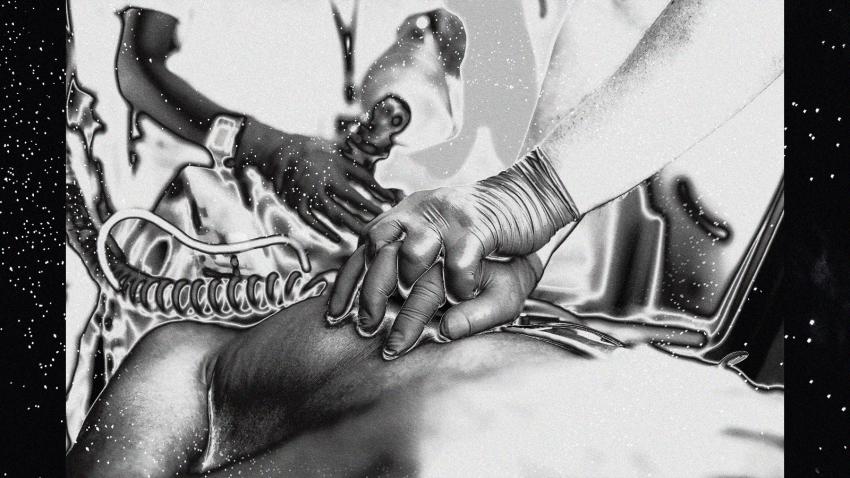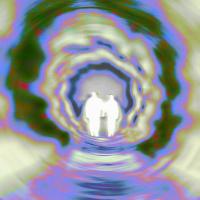Study finds CPR patients may frequently have near-death experiences

In the popular consciousness, it is a symbol of finality: the flatline, the stopping of the heart, whose beat keeps the time of life. But in interviews with researchers at NYU, some people whose hearts have stopped report near-death experiences, relating both to their death and the flurry of action around them, while their chests were being violently compressed during CPR.
Even though they outwardly appeared unconscious, the researchers recorded brain signals that are normally seen during consciousness
These are some of the findings of AWARE II, a study spearheaded by researchers from NYU Grossman School of Medicine. Involving 567 men and women in the US and UK who suffered cardiac arrest in hospital and received CPR, the research — published in 2022 — found that around one in five CPR survivors may have some sort of near-death experience.
“These lucid experiences cannot be considered a trick of a disordered or dying brain, but rather a unique human experience that emerges on the brink [of] death,” NYU’s Sam Parnia, the lead study investigator, said in a statement.
In interviews with researchers at NYU, some people whose hearts had stopped reported near-death experiences, relating both to their death and the flurry of action around them while receiving CPR.
On the edge of life and death: Parnia’s interest in the inner life of CPR patients can be traced back decades, he told Medical News Today (MNT). At the University of London in the mid-’90s, still finishing his degree, Parnia witnessed an attempted resuscitation of a cardiac arrest patient and wondered: did he know? Could the patient hear the staff fighting to save his life?
It kicked off a line of inquiry that he has yet to drop, aimed at answering two huge questions. “What is life?” Parnia asks, and: “When does it really end?”
He and his colleagues considered AWARE II a chance to apply a scientific lens to an anecdotal experience.
“For decades now, millions of people who’ve gone through this have reported having lucid heightened consciousness” — meaning the ability to think — Parnia told MNT, “even though from the perspective of their doctors they were not conscious and they were in death.”
The study: At 25 sites across the US and UK, when a patient’s heart stopped and hospital staff moved to resuscitate them, the researchers jumped into action. With a portable electroencephalogram (EEG) to measure electrical activity in the brain and near-infrared spectroscopy (NIRS) to measure oxygen saturation, the team gathered data about the brain as staff performed CPR to try to save their life.
They would also place a tablet above the patient’s head, paired to Bluetooth speakers placed in their ears; the tablet showed ten images, while the speakers played the words apple, pear, banana every five minutes.
“So when we designed this study, we wanted to not only have brain monitoring systems, but also to have a system to look for possible unconscious learning,” Parnia told MNT.
The team was able to detect spikes of brain activity in patients up to an hour into CPR, including alpha, beta, delta, gamma, and theta waves. These waves are associated with higher cognitive functions in conscious people, including memory recall, thinking, and conscious perception.
Survivors — though only 28 of the 567 were found to be healthy enough for interviews about their experience, according to MNT — also recounted similar experiences during interviews. These included a feeling of leaving their body; of heading towards some kind of “destination”; of observing the resuscitation efforts; of returning “home” and returning to their present bodies; and a meaningful evaluation of their lives.
The results on the tablets and recordings were relatively poor, however; no subjects correctly guessed which image had been included in the ten on the tablet, while only one identified the fruits listed on the recording, the researchers noted in a presentation.
Evidence on near-death experiences: “These recalled experiences and brain wave changes may be the first signs of the so-called near-death experience, and we have captured them for the first time in a large study,” Parnia said in the statement.
The combination of those signals and the similarities of near-death experiences suggests that consciousness may not stop at exactly the declared time of “death,” Parnia said — although the results from the tablet and audio cues might suggest that external perception, at least in those cases, may not continue during cardiac arrest.
Further research is needed to better define biomarkers of death and near-death experiences, and the long-term psychological health of patients who have experienced near-death experiences during CPR should be tracked, Parnia says.
We’d love to hear from you! If you have a comment about this article or if you have a tip for a future Freethink story, please email us at [email protected].















